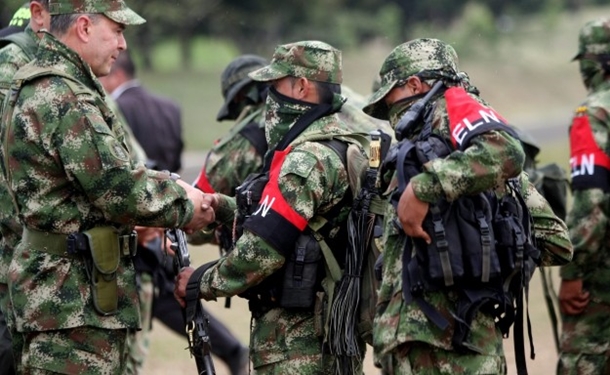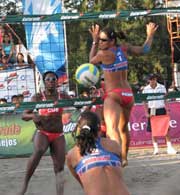Final group of Colombian victims visit Havana peace talks
 FARC rebels and government negotiating teams overcome challenges to finalize current round of peace dialogues.
FARC rebels and government negotiating teams overcome challenges to finalize current round of peace dialogues.
The fifth and final group of victims of the Colombian armed conflict arrived Monday in Havana to address representatives of the FARC guerrillas and the Colombian government’s negotiating team currently engaged in peace dialogues.
The issues of reparations for the victims of the conflict has been “the greatest challenge” for the negotiations, according to Sergio Jaramillo, a member of the government’s team in Havana.
In the past few months those challenges have included last month’s temporary suspension of the talks after a Colombian army general was seized by the Revolutionary Armed Forces of Colombia, better known as FARC.
The meeting between the FARC, government negotiators and the victims will take place Tuesday. The UN director in Colombia, Fabrizio Hochschild, said that those chosen to travel “had profiles that had not been represented so far in other delegations to Cuba, and with the intention of bringing over some known faces.”
This final delegation includes four victims of the right-wing paramilitaries, three victims of the FARC, one victim of the ELN, or National Liberation Army, and the remaining are victims of state forces and newly emerged criminal gangs known as Bacrim.
The UN, National University in Bogota and the Catholic Church chose the 12 victims to speak to the sides. The total number of victims who have been chosen to speak to the opposing parties now stands at 60, from a pool of 6 millions victims.
Also included in the current victims delegation is former Sen. Piedad Cordoba, known for her links to the Venezuelan government and work in aiding the release of FARC-held hostages.
Cordoba was held hostage for several weeks after being kidnapped in 1999 by the now demobilized United Self Defence Paramilitary group. Her inclusion in the victims’ delegation has caused some criticism since she is accused of having links to the FARC.
“Her presence in this group is a proof of the cynicism with which the peace process has been managed,” said Sen. Maria Fernanda Cabal of the Democratic Center party which has long been opposed to the peace talks.
While the talks have been widely acknowledged as the best possibility for achieving a peace with the FARC guerrillas in a conflict that has seen the deaths of 220,000 people and more than five million displaced since 1964, there are opponents to the process, not least of which is former president and now Sen. Alvaro Uribe, also a member of the Center Democratic Party.
The peace talks began in November 2012 and have reached agreements on the subjects of agrarian reform, political participation and illicit drugs but faced its sternest test with last month’s kidnapping of Gen. Ruben Dario Alzate.
During that time the FARC strengthened its position and reiterated the need for a truce or bilateral cease-fire, something President Juan Manuel Santos flatly refused.
“An agreement of scaling back the violence is fundamental in order to create more confidence in public opinion,” said Christian Voelkel an analyst for the International Crisis Group (ICG) in Colombia in an interview to AFP. He added that the general’s kidnapping was an “acid test that was successfully overcome” for the peace talks.
On a Sunday visit to rural areas of the department of Boyacá close to Bogota, President Santos acknowledged the difficulties of the negotiations. “It has not been easy. Making peace, believe me, it much more difficult than making war. War is popular,” he said.
[adrotate group=”10″]



